
History of the ASPCA

Founded in New York City in 1866 as the nation’s first animal welfare organization, The American Society for the Prevention of Cruelty to Animals (ASPCA) has spent more than 150 years on the front lines of the fight against animal cruelty – saving, transforming and protecting millions of lives and continuously revolutionizing how our rapidly changing society cares for animals. Until we create a culture that treats all animals with respect and kindness, our work to protect them will not stop.
This timeline highlights major ASPCA accomplishments and milestones, showcasing the legacy of our impact.
ASPCA History – Key Milestones
Henry Bergh founds the ASPCA in NYC, securing a charter from the New York State Legislature and prompting the passage of stronger anti-cruelty laws. 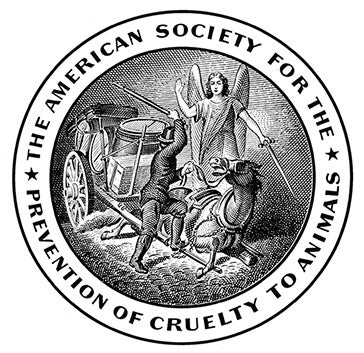 |
|
| Bergh campaigns against horse-cart overloading and provides clean drinking water for working horses.  |
The ASPCA takes over NYC’s stray and homeless animal care, a function previously performed by the city’s government. |
|
| In response to World War I, the ASPCA lectures at military forts and camps on the care of horses in warfare and provides custom-made horse ambulances and emergency supplies to the Allied veterinary corps in France, including a rescue sling and derrick invented by Bergh in 1875. |
The ASPCA Animal Hospital undergoes extensive renovations to accommodate isolation wards for infectious diseases. From its earliest days, the hospital has always provided care for animals belonging to those lacking access to veterinary services. 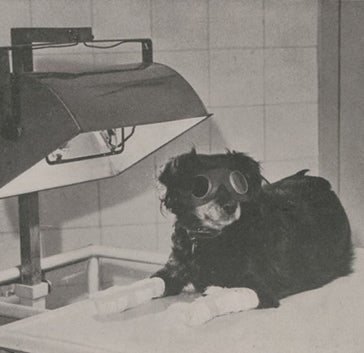 |
|
| The ASPCA conducts courses on the care of animals during wartime austerity measures and in the event of air raids. 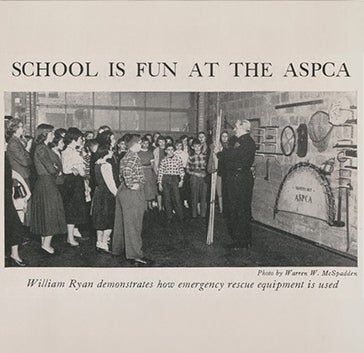 |
At a time when factory farming and mechanized, high-volume slaughter were becoming the norm in the U.S., the ASPCA, concerned about the potential for suffering, acquires the patents for new slaughter systems that reduce animal stress and offers them royalty-free to the industry, resulting in widespread adoption. |
|
| In recognition of the ASPCA’s centenary, the Post Office Department (now the U.S. Postal Service) issues a commemorative stamp promoting the humane treatment of all animals. |
The ASPCA begins spay/neuter surgeries for all cats and dogs adopted from its shelters. Over the next two decades, the reduction in the number of unwanted pets born results in fewer animals entering shelters, and other cities and states adopt this practice.  |
|
| The ASPCA is the first national animal welfare organization to begin using state-of-the-art microchips for animal identification. |
The ASPCA establishes a National Shelter Outreach program, which provides mentoring services and advice to shelters and acts as a conduit for corporations to provide grants and support to local shelters. |
|
| After 100 years of providing animal control services for New York City, the ASPCA completes the transition of these services to the Centers for Animal Care and Control, known today as Animal Care Centers of NYC. |
The ASPCA acquires the Animal Poison Control Center, a 24/7 veterinary toxicology resource, from the University of Illinois. |
|
| The ASPCA launches the first NYC mobile clinic for spay/neuter surgery and microchipping, eventually leading to a fleet of mobile clinics. |
The ASPCA establishes Veterinary Outreach, later known as Shelter Medicine Services, to advance healthcare for shelter animals nationwide. |
|
| The ASPCA responds to 9/11, rescuing animals and providing therapy teams for relief workers. |
The ASPCA supports the Certified Humane® certification program, a program of Humane Farm Animal Care setting USDA-backed standards for the humane treatment of farm animals from birth to slaughter. |
|
| The ASPCA helps found the Mayor’s Alliance for New York City’s Animals, a coalition of shelters and rescue groups in the tri-state area aiming to increase the city’s live release rate, which climbs from 25% to over 90% in a decade. |
The ASPCA aids Hurricane Katrina animal-rescue efforts, granting $13M to affected shelters, and later helps pass disaster-related pet laws that save lives and elevate the issue of animal safety to its rightful place among natural disaster priorities. 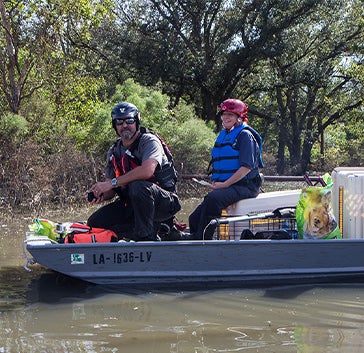 |
|
| The ASPCA renovates 12,000 square feet of our Adoption Center in Manhattan on East 92nd Street, adding large glass enclosures and playrooms for dogs, community cat rooms, and more than 100 individual cat habitats — combined with noise-reducing materials, air exchanges that limit the spread of disease, and other improvements — to create a less stressful environment for animals and a more inviting space for visitors. |
The ASPCA leads the response to the most extensive pet food recall in U.S. history and supports legislation to make pet food safer. |
|
| The ASPCA helps shut down the final three horse slaughterhouses in the U.S. through legislative efforts. |
The ASPCA successfully lobbies for passage of the Animal Fighting Prohibition Enforcement Act to make animal fighting a federal felony when the animals involved were moved across state lines. |
|
| The ASPCA designates April as National Prevention of Cruelty to Animals Month. |
The ASPCA and other organizations seize hundreds of dogs from multiple properties in several states in the largest dogfighting case in U.S. history (known as “The Missouri 500”). |
|
| The ASPCA launches the Veterinary Forensic Sciences Program, the nation’s leading companion-animal veterinary forensics program, which collaborates with law enforcement, prosecutors and animal shelters to provide a wide range of support for animal-related criminal investigations. Over 10 years, the ASPCA assists with more than 1,000 criminal investigations involving animals. |
The ASPCA establishes a National Field Response team to respond to animal cruelty cases and natural and manmade disasters. |
|
| The ASPCA leads sheltering efforts for 1,300 animals affected by violent tornados in Joplin, Missouri. Our efforts help reunite nearly 500 animals with their families and find homes for the remaining 800. |
The ASPCA launches a Behavioral Rehabilitation Center pilot program for fearful dogs from puppy mills and hoarding situations. The pilot captures research and data to help partner organizations elevate their shelter behavior programs and is featured in an award-winning ASPCA documentary, “Second Chance Dogs.” |
|
| The ASPCA launches a partnership with the New York City Police Department for animal cruelty response, training more than 28,000 officers in a decade and treating 5,000 animal victims of suspected cruelty. To support and care for these animals, the ASPCA opens an Animal Recovery Center and Canine Annex for Recovery & Enrichment in Manhattan. |
The ASPCA invests $25M to assist at-risk animals in Los Angeles, opening a fully subsidized spay/neuter facility and launching a kitten fostering program.  |
|
| The ASPCA opens a dedicated Kitten Nursery in New York City, primarily for kittens relinquished to Animal Care Centers of NYC, saving 11,000 kittens over 10 years. |
The ASPCA launches our Animal Relocation program in Los Angeles and expands to a nationwide program the following year, moving nearly 275,000 cats and dogs to adoption-ready communities by 2024. |
|
| The ASPCA helps pass the Veterinary Medicine Mobility Act, which enables mobile and ambulatory veterinarians to offer lifesaving care to animals in crisis. |
The ASPCA helps pass the Animal Fighting Spectator Prohibition Act as part of the federal Farm Bill to make attending animal fights a federal crime. |
|
| The ASPCA acquires the Humane Alliance (now the ASPCA Spay/Neuter Alliance), the nation’s leading training and education organization focusing on high-quality, high-volume spay/neuter surgeries for cats and dogs.  |
The ASPCA launches our Northern Tier Shelter Initiative (NTSI), a specialized program funded by the Margaret A. Cargill Philanthropies providing grants, free consultations, and training to brick-and-mortar shelters, non-profit veterinary clinics and Indigenous communities in Alaska, Washington, Idaho, Montana, North Dakota, Minnesota and Wisconsin to improve quality of life for cats and dogs. By 2024, NTSI provides $9M in grants to 250 animal welfare organizations. |
|
| The ASPCA celebrates 150 years as the country’s leading voice for animals. Our months-long celebration includes a national campaign inspiring public acts of compassion to save and protect animals from cruelty, as well as the distribution of $150,000 in grant funding to local shelters. 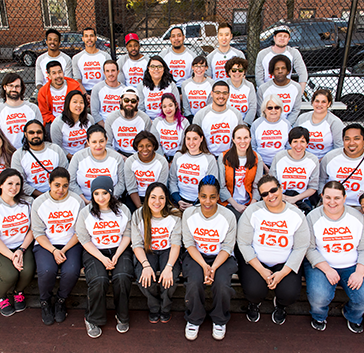 |
The ASPCA unveils our Shop With Your Heart program to inform consumers, food businesses and lawmakers about solutions that will improve the lives of animals raised for food in the United States. |
|
| The ASPCA builds the first-ever permanent Behavioral Rehabilitation Center in Weaverville, North Carolina, and simultaneously launches a Learning Lab to advance shelter behavior programs nationwide through staff education, consulting and professional training. |
The ASPCA helps pass the PAWS Act, which makes crossing state lines to injure a pet a federal offense. |
|
| The ASPCA expands equine welfare and adoption efforts by acquiring The Right Horse Initiative and forms a diverse coalition working toward better protection of wild horses and burros on federally managed lands. 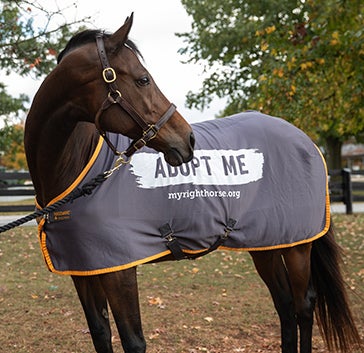 |
The ASPCA launches a multi-year initiative to build a network of Community Veterinary Clinics (CVCs) for low-income pet owners in underserved communities. The first CVC opens in Miami in 2019, followed in 2021 by CVCs in the Bronx and Brooklyn. In 2024, the ASPCA Community Veterinary Clinic by The Rachael Ray Foundation™ opens in Queens. |
|
| The ASPCA provides $7.5M in COVID-19 relief for pet owners and animal welfare groups, ultimately assisting more than 320,000 dogs, cats and horses. |
The ASPCA’s rescue of animals from puppy mills prompts the introduction of Goldie’s Act, a bill that aims to strengthen protections for dogs suffering in federally licensed facilities. |
|
| The ASPCA launches our Equine Transition and Adoption Center in Oklahoma to support horses across the state and solve the challenges preventing some horses from efficiently finding homes in shelters nationwide. |
The ASPCA-led New York Puppy Mill Pipeline Bill was passed to end the sale of commercially bred cats, dogs and rabbits in pet shops throughout New York State. |
|
| The ASPCA Animal Poison Control Center reaches 4 million clients served. |
The ASPCA opens a Cruelty Recovery Center in Columbus, Ohio, a permanent facility dedicated to the recovery of animals rescued from large-scale animal cruelty situations and emergencies like hurricanes, tornadoes and wildfires.  |
|
| The ASPCA celebrates the publication of the USDA’s updated Organic Livestock and Poultry Standards Rule, which improves protections for hundreds of millions of animals raised annually on organic farms. Prohibitions include cruel practices such as debeaking birds, tail-docking of pigs and housing pregnant pigs in gestation crates |
The ASPCA launches a new campaign called The Rescue Effect that encourages the public to help shelter animals through adoption and fostering. |
|
| The ASPCA supports CalAnimals and San Francisco SPCA to help launch California Adopt-a-Pet Day, promoting the human-animal bond across California while making pet adoptions affordable and accessible. |
The ASPCA provides funding to support a new Animal Support Center for Oktibbeha County Humane Society in Starkville, Mississippi. The Animal Support Center houses the OCHS Spay & Neuter Clinic as well as the VanLandingham Kennel Facility. |
|














































